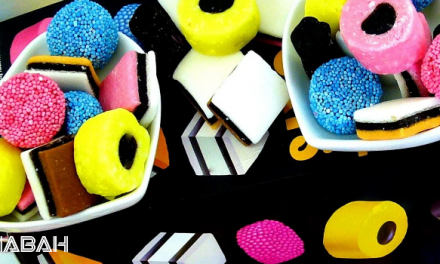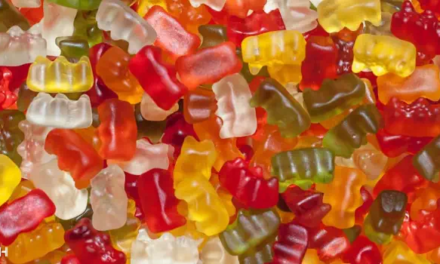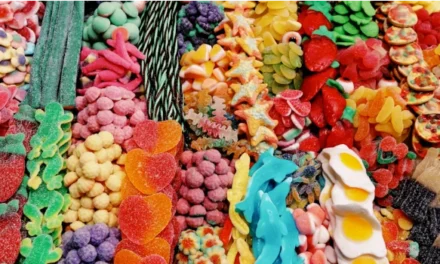Mochi, a popular Japanese delicacy known for its soft and chewy texture, has gained international fame for its unique taste and versatility. However, for those following Islamic dietary laws, the question arises: Is mochi halal? This article aims to explore the halal status of mochi and shed light on the factors that determine its acceptability for Muslims. We will examine the ingredients used in mochi production, the manufacturing process, and whether any alternatives can be considered halal. By providing clarity on this matter, we hope to assist Muslims in making informed choices about consuming this popular Japanese treat.
Can Muslims Partake in this Japanese Staple
Mochi is a popular Japanese rice cake made from mochigome, a short-grain japonica glutinous rice. The rice is pounded into a paste and molded into the desired shapes.
Mochi has a chewy, sticky texture and a neutral flavor. It is often stuffed with sweet or savory fillings like red bean paste, fruit purees, ice cream, or vegetables. Some key facts about mochi include:
- Traditional mochi is made by repeatedly pounding mochigome rice in a process called mochitsuki
- Modern commercial production uses machines to automate the pounding and shaping
- Common flavors are white, pink, green, and brown
- Mochi can be eaten year-round but is especially popular around New Year’s
- Typical shelf-life is 1-2 weeks refrigerated
For many Muslims, the halal status of mochi is unclear. Some key concerns include:
- Potential use of alcohol in production
- Possible contamination with pork or derivatives
- Questionable halal certification of some brands
This article will evaluate the halal permissibility of mochi for Muslims.
What Makes Food Halal or Haram?
Halal is a term used to describe actions and behaviors that are considered permissible according to Islamic teachings. Conversely, Haram denotes actions or behaviors that are forbidden within the context of Islam. When it comes to food, Halal food is any food deemed permissible under Islamic law, as defined in the Quran. The Islamic dietary laws specify that all food and beverages are considered Halal unless they are explicitly stated as forbidden. The opposite of Halal is Haram, which refers to any act or object expressly proscribed in the Quran and the Hadith.
Halal food must be prepared with minimal suffering to the animal and the pronouncement of God’s name during the slaughter, as the animal is being sacrificed to Him. This means that the animal must be alive and healthy at the time of slaughter, and the slaughter must be performed by a Muslim who pronounces the name of Allah at the time of slaughter. The animal must also be slaughtered with a sharp knife to ensure a quick and painless death. In addition to the method of slaughter, Halal food must not contain any pork or pork by-products, blood, alcohol, or any other substance that is considered Haram.
Halal food is any food that is permissible under Islamic law, as defined in the Quran. Halal food must be prepared with minimal suffering to the animal and the pronouncement of Allah’s name during the slaughter, as the animal is being sacrificed to Him. Halal food must not contain any pork or pork by-products, blood, alcohol, or any other substance that is considered Haram.
Evaluating Common Ingredients in Mochi
The primary ingredient in mochi is mochigome or glutinous rice. Rice is generally considered halal. According to one source:
Rice, in its natural state, is Halal when meeting all other criteria for Halal.
Some other common ingredients found in various mochi products include:
- Sugar – Halal when not processed through bone char. Many vegan sugars are halal-certified.
- Food coloring – Typically halal but some contain carmine (an insect-based dye).
- Flavors – Natural and artificial flavors are usually halal.
- Stabilizers – Acceptable ones like tapioca starch and carrageenan are halal.
- Fillings – Sweet bean paste, fruit purees, ice cream, etc. are halal if all components are.
Potential problematic ingredients found in some mochi:
- Gelatin – Haram if from pork sources. Halal if from halal fish.
- Alcohol – Any form or amount would make mochi haram.
- Shared equipment – Cross-contamination risk if prepared on machinery also used for haram foods.
With pure, natural ingredients, most mochi should meet halal ingredient standards. But the presence of alcohol or pork-derived gelatin in some products makes checking crucial.
How Mochi is Made
Mochi is a Japanese rice cake made from glutinous, short-grain rice called mochigome (mochi rice). Mochi is a multicomponent food consisting of polysaccharides, lipids, protein, and water. The rice used for mochi has a negligible amylose content and a high amylopectin level, producing a gel-like consistency. Mochi has a heterogeneous structure of amylopectin gel, starch grains, and air bubbles. The protein content of the japonica rice used to make mochi is higher than that of standard short-grain rice.
Plain mochi is made with only two simple ingredients: mochigome (short-grain glutinous rice) and water. Mochi is commonly used as the umbrella term for all the different styles and flavors of Japanese rice cakes outside of Japan. In Japan, however, the definition of “mochi” can be a little murky and bemusing. Mochi is a type of dough made from pounded steamed rice.
Sourcing Halal-Certified Mochi Products
To source Halal certified mochi products, it is important to look for products that have been certified by an accredited Halal certifying body. This certification assures consumers that the product meets the Halal requirements and is permissible for consumption according to Islamic law. One way to find Halal certified mochi products is to check the product packaging for a Halal certification label or logo. Another way is to search for Halal certified mochi products online or at specialty stores that cater to Halal food products. Some companies, such as My/Mochi, have already obtained Halal certification for their products. It is also important to ensure that the raw materials or ingredients used in the mochi products are sourced from companies that have a Halal certificate or statement of Halal compliance.
Many major mochi brands now produce halal-certified products to meet Muslim demand:
An increasing number of mochi brands understand the need to cater for specific religious food requirements. They have obtained halal certification from recognized Islamic authorities.
Some reputable halal-certified mochi brands include:
- Sakura Mochi – Certified by JAKIM and MUIS
- Fujiya – Certified by JAKIM
- Monde Mochi – Certified by IFANCA
- Kee Mochi – Certified by IFANCA
Are Homemade and Restaurant Mochi Halal?
When it comes to homemade mochi or that served in restaurants, determining halal status becomes more challenging:
Verifying the halal credibility of mochi from informal sources like home cooks or restaurants is much harder than commercially produced ones.
Potential risks with homemade/restaurant mochi:
- Recipe may include alcohol, pork, or other haram ingredients
- Food prep areas likely not fully segregated from non-halal foods
- No third-party auditing as is done for certified products
To mitigate these risks, Muslims should:
- Ask for complete ingredient lists and preparation details
- Inquire about measures to prevent cross-contamination
- Exercise caution and avoid if doubts arise on halal status
Ideally, homemade and restaurant mochi should be avoided. But if consuming, steps should be taken to verify halal integrity:
When eating mochi from uncertain sources, Muslims have a duty to make effort investigating and minimizing any shubuhat (doubts) concerning its permissibility.
With proper precautions, homemade and restaurant mochi may still be consumed but extra care is required compared to certified products.
Frequently Asked Questions – Is Mochi Halal
What is mochi?
Mochi is a traditional Japanese dessert/snack made from glutinous rice flour.
Is mochi halal?
Mochi can be halal if it is made with halal ingredients and follows the halal guidelines in its preparation process.
What are the main ingredients of mochi?
The main ingredients of mochi are glutinous rice flour, water, and a filling like red bean paste.
Is mochi typically consumed in Japan?
Yes, mochi is a popular traditional Japanese food.
Can Muslims eat mochi?
Muslims can eat mochi as long as it is made with halal ingredients and does not contain any haram substances.
Is the filling in mochi always made from red bean paste?
No, while red bean paste is a common filling, there are various other fillings used in mochi, such as sakura (cherry blossom) or mochi ice cream.
What is the texture of mochi?
Mochi has a sticky and chewy texture.
Is the flavor of mochi sweet?
Yes, mochi is typically sweet in flavor.
How is mochi made?
Mochi is made by steaming Japanese rice, pounding it into a smooth paste, and shaping it into the desired form.
Are there halal-certified mochi products available?
Yes, there are halal-certified mochi products available in certain places, such as Tokyo. We recommend checking the packaging or certifications to ensure its halal status.
Conclusion
Mochi can be Halal if it is made with Halal-certified ingredients and follows Halal guidelines. Some mochi products are already Halal-certified, such as the Halal-certified kibidango available at Tottori Okayama Shinbashi-kan in Ginza, Tokyo. Homemade mochi can also be considered Halal if it is prepared using Halal-certified ingredients and follows Halal guidelines. Some mochi products, such as the Japanese Style Green Tea Mochi and Mochi Ice Dessert – Cool Mix, are also Halal-certified according to eHalal. Additionally, Daifuku Mochi Ice Cream is Halal-certified according to TAC FOOD. It is important to check the ingredients and preparation methods used to ensure that mochi is Halal.





